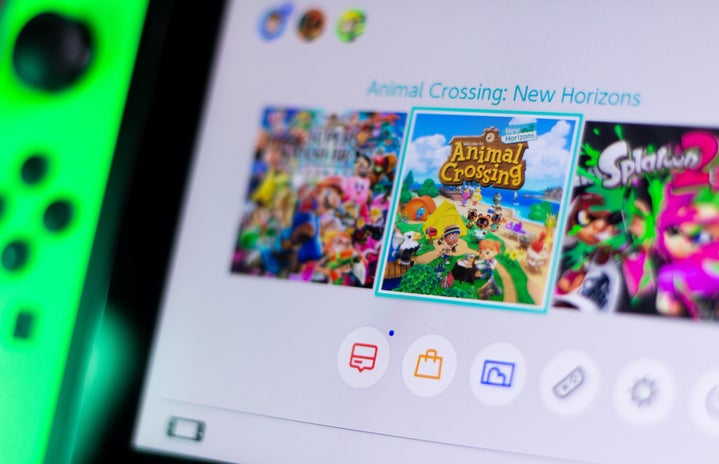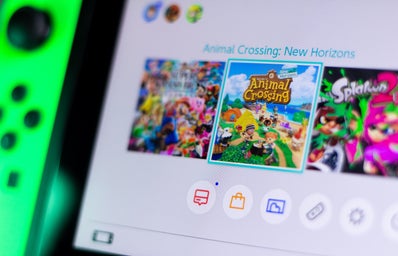This article originally started life as an article praising the Dungeons & Dragons (D&D) show Critical Role, a web series that has now taken life as an animated show on Amazon Prime. However, when searching for images to add on this platform, I realized that there were none for Critical Role. That’s okay, it’s newly made mainstream, but then I learned that there were no available images for D&D as well.
When searched, the only images available for use under “video games” were images of Nintendo Switches with the title screen for Animal Crossing: New Horizons displayed. Now, I love Animal Crossing more than the average person should, but this lack of diversity hurts, and perpetuates the stereotype of “girl gamers”, one that hurts more than people may realize.
My love of video games started when I was very little, playing Mario Party 8 with my family. I loved the minigames, and the strategy involved, and how the game was competitive but easy to follow along with. This love only grew, and I dabbled in every video game genre from cozy farming simulators like Stardew Valley to grittier games like Fallout and God of War. I fell in love with the characters, the stories, and the art design, and how immersive something on my TV could be.
When I bring up that I love cozier games though, like Animal Crossing, Stardew Valley, Coffee Talk, etc., people nod, make polite conversation about these games, and even tell me that “that makes sense” for me. For context, I am a very “girly girl”. I love Taylor Swift, pretty dresses and heels, and consider doing my makeup every morning a priority. Gaming culture dictates the games I play as “girly games” or “not real games”, solely because they are lighthearted, have brighter color palettes, and have very flexible objectives. There really isn’t winning or losing in these games. I have been told that I do not play “real games” and should playing a “real game”. “Real games”, in case you didn’t know because I sure didn’t, are more of the gritter, hardcore, violent games. These are your games like Call of Duty, Mortal Kombat, Resident Evil, and the like.
Fun fact: I have played many of these “real games”.
Equally as fun of a fact; despite being told I should play “real games”, I have been harassed over playing these games.
I am not particularly skilled in Mortal Kombat, Fallout, or God of War, but I am fascinated by the stories and the character designs within the stories. By playing, I’ve naturally acquired some skills to play these games, but I have not spent hours on hours working to learn these skills and pursue playing at a higher competitive level, such as in online tournaments. Even if I did possess this caliber of skill, I would not go in an online tournament unless there was no voice chat feature. Women in gaming have long been harassed in voice chats in gaming, with insults ranging from the unoriginal “You should make me a sandwich” to much more vile insults that could reasonably be classified under sexual harassment. This hostile environment makes it difficult to enjoy online gaming, with the continuous threat of being harassed simply for being a female player.
Another form of harassment that comes with the territory of being a female gamer, or a woman with interests in any “male interest” is the twenty questions game. I can list a substantial number of experiences that I’ve encountered where I’ve mentioned I like something that society has deemed a “male interest”, and I have gotten the third degree about this interest. The point of this interrogation tactic is to try and “prove” that I don’t actually know anything about these interests and are therefore only saying I like them in an attempt to appeal to men. No, I don’t know the year the first Mortal Kombat game was released, I can’t assemble the Fallout games into the correct timeline, and I can’t explain the lore behind my Mortal Kombat main (Mileena, if anyone was interested), beyond the base lore and characterization. And I shouldn’t have to. It should be enough that I have any sort of interest in these games and should spare me from accusations of being a “fake gamer” or a “poseur”.
I have been so incredibly lucky to know a handful of male gamers who reject this toxic male stereotype and have been excited that I share their interests. This kind of acceptance should be commonplace, and yet, it is rare. The gaming community should be open to all who want to play, and yet is made to seem inaccessible because of the unrelenting cruelty female gamers are subjected to. This is a cruelty that is unwarranted and unneeded, and yet, it persists. Hopefully one day these stereotypes will break down, or at least diminish to be a lesser part of gaming culture. Until then, I will gladly show you my Animal Crossing island if asked and will just as gladly log on for a Mortal Kombat match.


